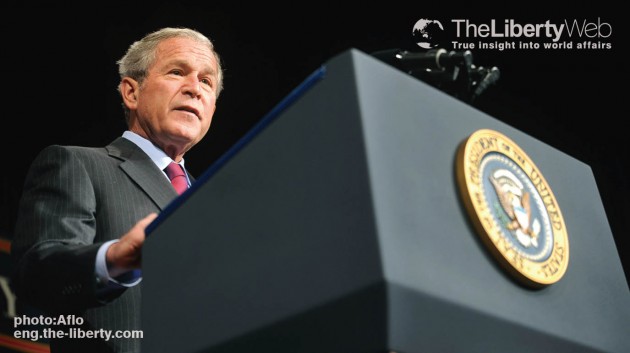Ten Years After the Iraq War
Will Americans Succeed in Dealing With Their Regret Over the Intervention?
Ten years have passed since America invaded Iraq. You can still find a sea of criticism for the U.S.’s decision to invade that country.
Richard Hass, the President of the Council on Foreign Affairs, said in an interview, “I don’t see how you can overlook the costs, whether you consider more than 4,400 American lives, upwards of 30,000 U.S. casualties, and over $1 trillion in immediate spending. And that doesn’t include the long-term health-care costs as well as the cost of lost earning power. So are you asking me was it worth it? Was this a good set of decisions that were well implemented? The answer I would say is absolutely not.”
Philip Stephens, an associate editor of The Financial Times, described this war as “American hubris”. The word hubris originally came from the Greek language, and this type of pride usually entailed a punishment from God such as was depicted in the Tower of Babel and this kind of pride was also counted as one of the Seven Deadly Sins in Christianity.
If former President George W. Bush’s ‘Axis of Evil’, which was described in his 2002 State of the Union Speech, were to be viewed as a superficial discernment of good from bad, then President Bush put the U.S. on the side of good, and he labeled Iraq, Iran, and North Korea on the side of evil.
Furthermore, he appeared to wage a ‘holy war’ against Iraq based on his Christian Fundamentalist thoughts.
Compared with the humble attitude Lincoln had, a man who thought the civil war arose because of sins from both sides; it was hard to find a sense of humility in former President Bush’s attitude.
The Shiite minority, which is the dominant sect in Iran, became authoritative after the invasion; it’s difficult to designate Nouri-al-Maliki’s government as pro-American, and grave tensions between the Sunnis and Shiites and the Arabs and Kurds still exist that could trigger a civil war or tear the entire state apart.
However, it may be too early still to say the Iraq war deserves to be called ‘hubris’, the kind that could give God reason to punish the American people.
Because WMDs were not found, the Iraq War is regarded as ‘wrong’ and ‘unjust’, and even some pundits’ use the words ‘war crime’. However, in the book titled Was the Iraq War Justified? A Spiritual Investigation of Saddam Hussein After Death ” (the English version will be available in June), CEO and founder of Happy Science, revealed the astonishing fact that Saddam Hussein was the mastermind of the 9/11 attacks, and there was a clear link between Osama bin Laden and Saddam Hussein. Master Okawa also brought to light how Iraq was already in possession of WMDs, which Iraqis may have thrown away before the U.N. inspectors arrived on the scene.
On top of that, as Master Ryuho Okawa pointed out in his book, if this war could be viewed in increments of one thousand years, the loss of the war may have made it possible for Iraq and the rest of Arab world to innovate their religious traditions.
It is reported that if there had not been the Iraq war, Saddam Hussein would have survived, and if Hussein’s dictatorship had not been toppled, which behaved as it were led by the second coming of Saladin, the democratic political system, including popular elections, would not have been possible. Now the North and South parts of Iraq have recovered their oil producing abilities, and Iraq is the second largest maker of oil, soon to exceed Russia in terms of its yield.
A civilization could be difficult to self-transform unless it had a fateful crisis or it experienced defeat through war; for example, the rise of the Occidental civilization after the Industrial Revolution was attributed in part to its modernization efforts. The leaders sensed they were in peril unless they advanced their society. They felt pressured by the highly advanced sciences and culture of the Islamic civilization during the Middle Ages.
The Iraq War was well deserved based on three points: firstly, Iraq actually possessed WMDs; secondly, there were links between Saddam Hussein and Osama bin Laden; and thirdly, it opened the door for political reforms that have created the preconditions for a complete religious reformation of the Muslim world.
Since the American public has become cautious in intervening in another war due to the recoil effect, and the Obama administration consists of the members that have publicly criticized the Iraq war, President Obama will keep his non-interventionist policy position with regard to Syria.
However, the U.S. has to remind itself of its roots as a country that was founded with a belief in liberty and justice. If it becomes too timid to realize its cause, its people should no longer call it ‘America’.
We hope that the U.S. can overcome its sense of regret and guilt, and it can restore its true American belief system.



















